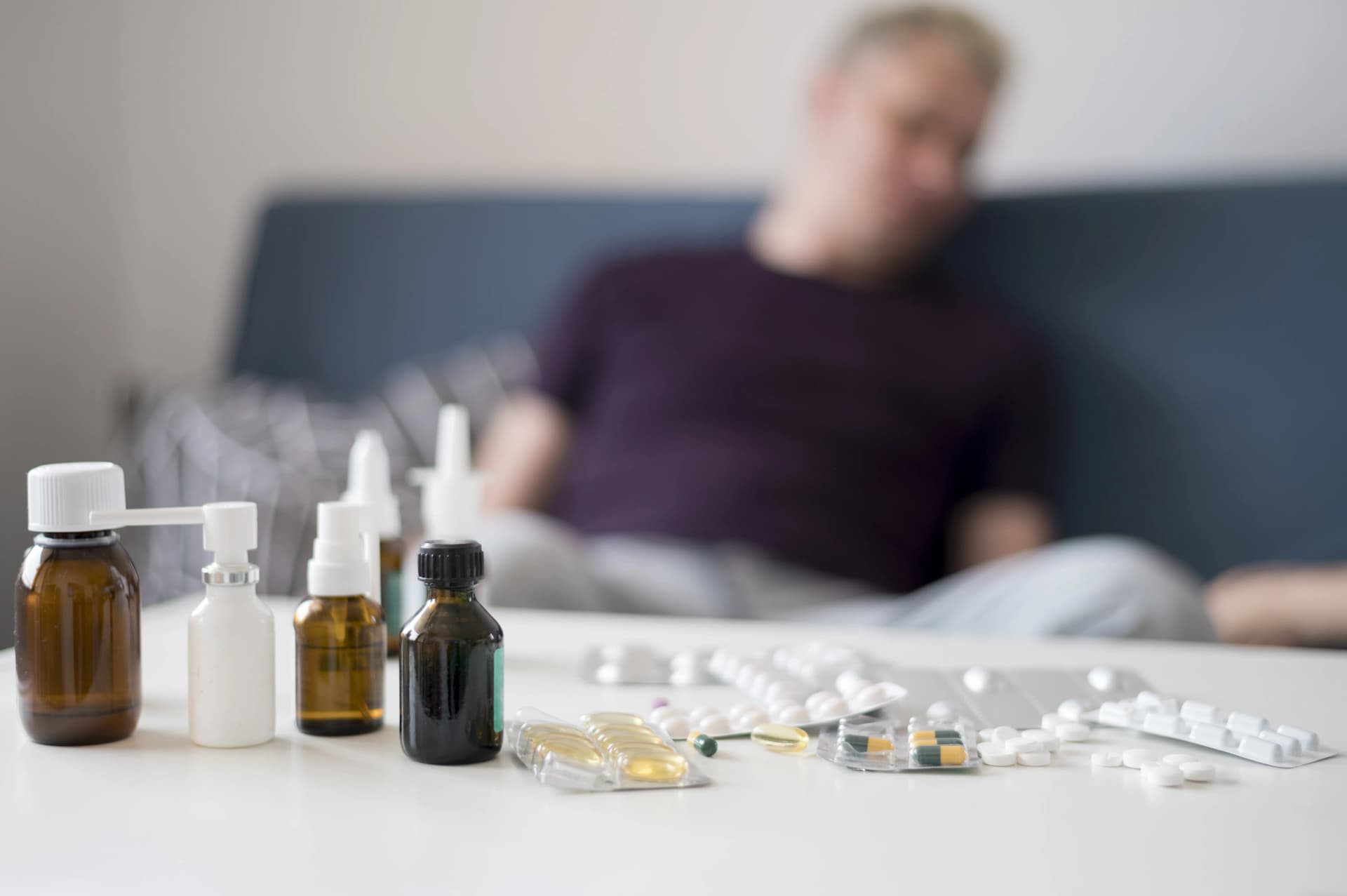
Anxiety Medications: Types, Side Effects & Natural Alternatives
Anxiety is a common mental health condition that affects millions of people. It can cause feelings of worry, nervousness, or fear that are strong enough to interfere with daily life. Fortunately, there are many treatment options available, including prescription medications and natural remedies.
In this blog, we’ll explain the different types of anxiety medications, their possible side effects, and natural alternatives that may help ease symptoms. Always talk to your doctor or pharmacist before starting or stopping any treatment.
What Are Anxiety Medications?
Anxiety medications are drugs prescribed to help reduce or manage the symptoms of anxiety. They work by affecting the chemicals in your brain that control mood and stress responses.
There are several classes of medications used to treat anxiety. Each works differently and may be prescribed based on your specific symptoms and health history.
Types of Anxiety Medications
1. Selective Serotonin Reuptake Inhibitors (SSRIs)
Common examples: Sertraline (Zoloft), Escitalopram (Lexapro), Fluoxetine (Prozac)
SSRIs are often the first choice for long-term anxiety treatment. They work by increasing serotonin levels in the brain, which can help improve mood.
Pros:
-
Generally safe for long-term use
-
Can also help with depression
Cons:
-
May take a few weeks to work
-
Possible side effects (see below)
2. Serotonin-Norepinephrine Reuptake Inhibitors (SNRIs)
Common examples: Venlafaxine (Effexor XR), Duloxetine (Cymbalta)
SNRIs work similarly to SSRIs but also affect norepinephrine, another brain chemical linked to mood.
Pros:
-
May help with both anxiety and chronic pain
-
Suitable for long-term use
Cons:
-
May cause more side effects than SSRIs
3. Benzodiazepines
Common examples: Lorazepam (Ativan), Alprazolam (Xanax), Diazepam (Valium)
These are fast-acting medications used for short-term anxiety relief or during intense episodes.
Pros:
-
Work quickly (often within 30 minutes)
-
Helpful in acute anxiety or panic attacks
Cons:
-
Risk of dependence or withdrawal
-
Not recommended for long-term use
4. Buspirone
Brand name: BuSpar
Buspirone is used for generalized anxiety disorder (GAD) and works differently than SSRIs or benzodiazepines.
Pros:
-
Low risk of dependence
-
Mild side effects
Cons:
-
May take 2–4 weeks to start working
5. Beta-Blockers
Common example: Propranolol
Beta-blockers are typically used for heart conditions but may be prescribed for physical symptoms of anxiety, like a rapid heartbeat or shaking hands.
Pros:
-
Good for situational anxiety (e.g., public speaking)
-
Non-habit forming
Cons:
-
Doesn’t treat emotional symptoms
Possible Side Effects of Anxiety Medications
All medications can have side effects. Common ones include:
-
Nausea or upset stomach
-
Drowsiness or fatigue
-
Dry mouth
-
Weight changes
-
Sexual side effects
-
Dizziness or lightheadedness
More serious side effects are rare but possible. Always report new or worsening symptoms to your healthcare provider.
Natural Alternatives for Anxiety
Some patients prefer to try natural or lifestyle-based options to support their mental health. While these methods may not replace medication for everyone, they can be helpful as part of an overall treatment plan.
1. Therapy and Counseling
Cognitive Behavioral Therapy (CBT) is one of the most effective non-drug treatments for anxiety. It helps identify negative thought patterns and teaches coping skills.
2. Exercise and Movement
Regular physical activity can reduce stress and boost your mood by releasing “feel-good” chemicals like endorphins.
3. Mindfulness and Meditation
Practices such as yoga, meditation, or breathing exercises can lower anxiety levels over time and improve focus.
4. Herbal Supplements
Some people find relief with herbs like:
-
Chamomile
-
Lavender
-
Ashwagandha
-
Valerian root
Important: Supplements are not regulated like prescription medications. Always check with your pharmacist before using herbal remedies, especially if you’re taking other medications.
5. Sleep and Nutrition
Getting enough sleep and eating a balanced diet can make a big difference in how your body and mind handle stress.
Talk to Your Pharmacist
At Sylvania Pharmacy, we understand that managing anxiety can feel overwhelming. Whether you're considering starting medication or looking into natural options, we're here to help. Our pharmacists can answer your questions, explain how medications work, and help you find the safest, most effective path to relief.
Final Thoughts
Anxiety medications can be a safe and effective part of treatment for many people. But they aren’t the only option. Working with your healthcare team—including your pharmacist—can help you find the best approach for your unique needs.
If you have questions about anxiety medications or alternatives, visit Sylvania Pharmacy or call us today. We're here to support your journey to better mental health.
